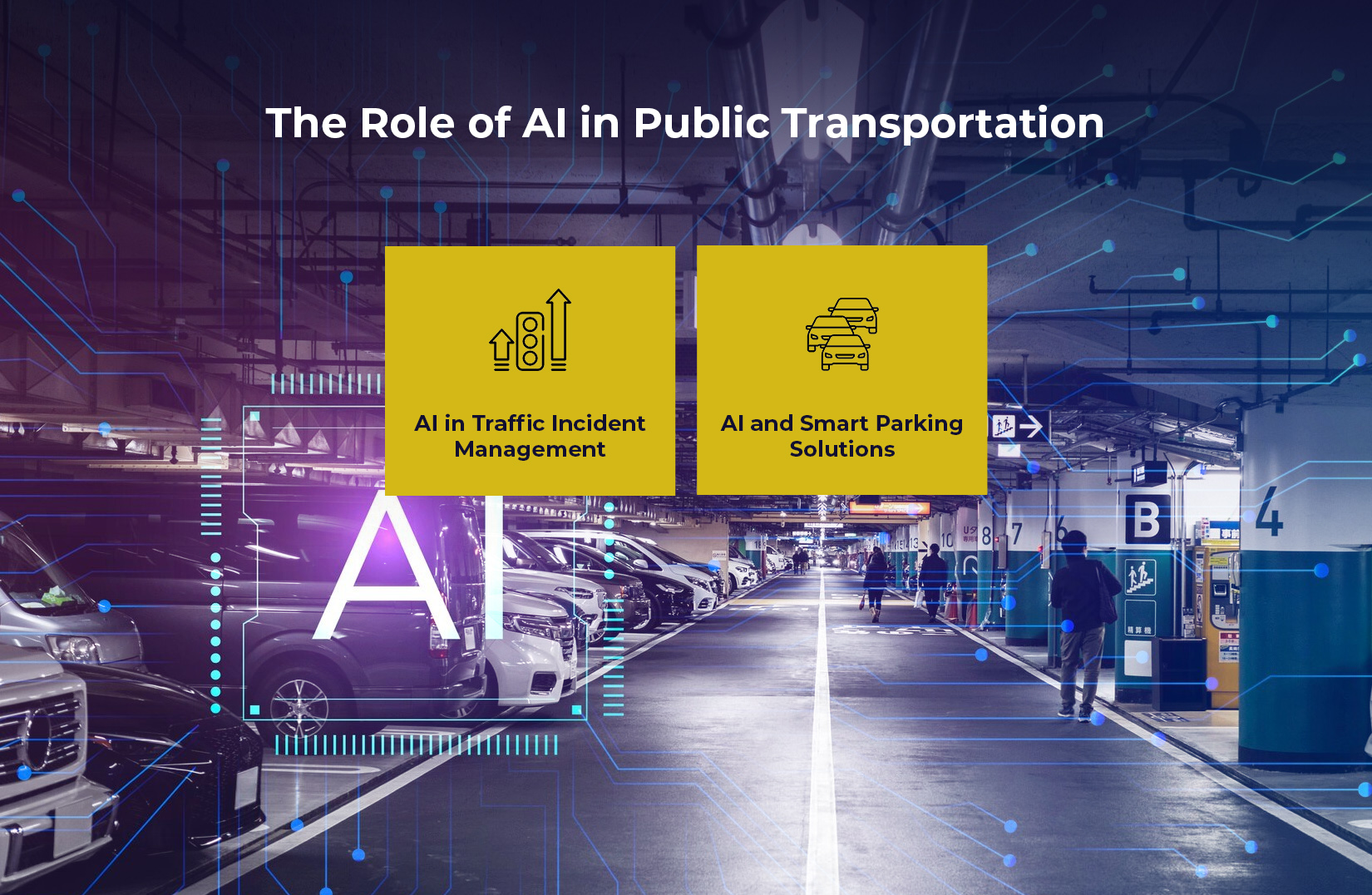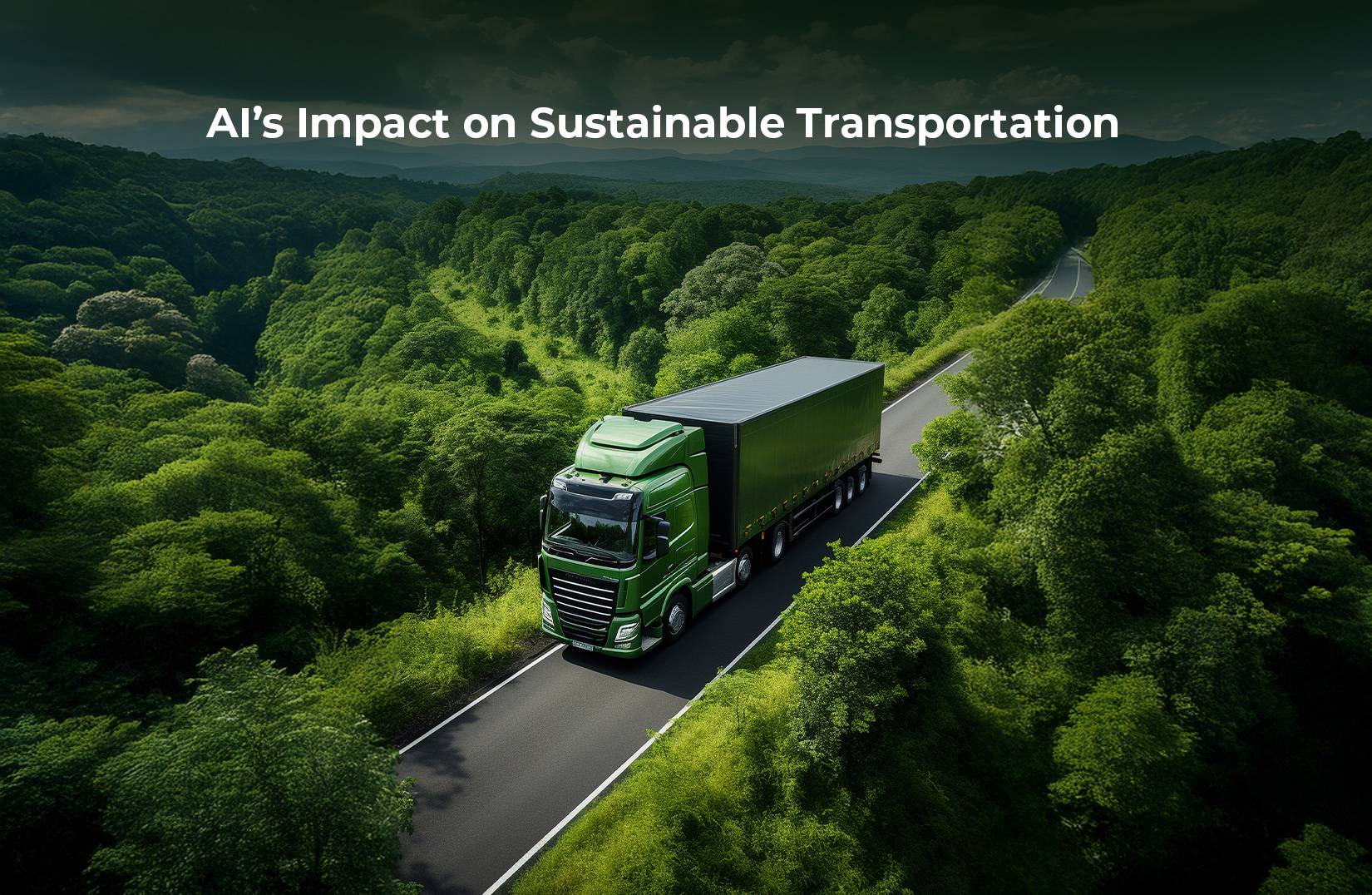
How AI is Revolutionizing Intelligent Transportation Systems
The rapid advancement of artificial intelligence (AI) is transforming various industries, and transportation is no exception. AI is reshaping intelligent transportation system, making it more efficient, safer, and sustainable. From predictive analytics to real-time traffic management, AI-powered solutions are driving the future of mobility.
AI-Powered Intelligent Transportation Solutions

An intelligent transportation system (ITS) integrates cutting-edge technology to improve traffic flow, reduce congestion, and enhance road safety. AI-driven intelligent transportation solutions leverage machine learning, big data, and automation to optimize transportation networks. These solutions enable real-time decision-making, allowing for more adaptive and responsive urban mobility systems.
An intelligent transportation system (ITS) integrates cutting-edge technology to improve traffic flow, reduce congestion, and enhance road safety. AI-driven intelligent transportation solutions leverage machine learning, big data, and automation to optimize transportation networks. These solutions enable real-time decision-making, allowing for more adaptive and responsive urban mobility systems.
1. Real-Time Traffic Management:
Traffic congestion is a significant challenge for urban areas worldwide. AI-driven intelligent transportation software can analyze massive datasets from sensors, GPS, and cameras to predict and manage traffic conditions. According to a study by INRIX, congestion costs the U.S. economy nearly $87 billion annually. AI can reduce this economic burden by optimizing traffic signal timings, rerouting vehicles, and predicting congestion hotspots. Research shows that AI-based traffic control systems can reduce travel time by up to 25%.
2. Autonomous Vehicles and AI Integration:
Autonomous vehicles (AVs) are one of the most revolutionary applications of AI in transportation. AI enables self-driving cars to interpret sensor data, detect obstacles, and make real-time driving decisions. Companies like Tesla and Waymo use AI-driven intelligent transportation platforms to improve vehicle safety and efficiency. According to the National Highway Traffic Safety Administration (NHTSA), 94% of car accidents are caused by human error, and AI-powered AVs have the potential to significantly reduce these incidents. A report by Allied Market Research estimates that the autonomous vehicle market will reach $556 billion by 2026.
The Role of AI in Public Transportation

Public transportation is a vital part of urban mobility, and AI is playing a key role in optimizing its efficiency. AI-powered intelligent transportation software helps in predicting passenger demand, optimizing routes, and reducing wait times. For example, AI-driven predictive analytics can help public transit authorities adjust bus and train schedules dynamically based on real-time demand. Studies indicate that AI-based route optimization can reduce fuel consumption in public transport fleets by 10% to 15%.
1. AI in Traffic Incident Management:
AI-based intelligent transportation platforms can analyze accident patterns and predict high-risk zones. By using real-time data from surveillance cameras and social media reports, AI can alert emergency responders instantly. This quick response can save lives and prevent further traffic disruptions. In Singapore, AI-driven traffic management systems have reduced accident response time by 15%, leading to improved road safety. According to the World Health Organization, road traffic accidents cost countries approximately 3% of their GDP annually.
2. AI and Smart Parking Solutions:
Parking inefficiencies contribute to urban congestion. AI-powered intelligent transportation solutions can guide drivers to available parking spaces, reducing the time spent searching for a spot. According to the International Parking Institute, 30% of urban traffic congestion is caused by drivers looking for parking. AI-integrated parking systems use sensors and predictive analytics to address this issue efficiently. Studies suggest that AI-driven smart parking solutions can reduce the time spent searching for a parking space by up to 43%.
AI’s Impact on Sustainable Transportation

Sustainability is a growing concern, and AI is helping create greener transportation systems. AI-powered intelligent transportation software can optimize fuel consumption, reduce carbon emissions, and promote eco-friendly mobility options. For instance, AI can enable smart traffic signals that prioritize public transport and cycling lanes, encouraging sustainable travel modes. A study by the International Transport Forum estimates that AI-driven traffic management could reduce CO2 emissions by up to 20%.
AI in Freight and Logistics
AI is also transforming freight and logistics by improving supply chain efficiency. AI-driven intelligent transportation platforms use predictive analytics to optimize delivery routes, reducing fuel consumption and operational costs. A study by McKinsey & Company suggests that AI could increase logistics efficiency by 15% while reducing costs by 20%. According to the American Transportation Research Institute, AI-powered route optimization can lower fuel costs by up to 12%.
The Future of AI in Transportation
The future of AI in intelligent transportation systems looks promising. With continuous advancements in AI, machine learning, and IoT, transportation systems will become even smarter and more efficient. Governments and private organizations are investing heavily in AI-driven intelligent transportation software to build smart cities and improve urban mobility. AI-powered traffic control systems, predictive analytics, and autonomous vehicles will continue to revolutionize how people and goods move.
Furthermore, AI’s integration with 5G and blockchain technology will enhance security, connectivity, and real-time data processing in transportation networks. As more cities embrace AI-driven intelligent transportation solutions, we can expect reduced congestion, lower emissions, and safer roads. The future of transportation will be defined by AI’s ability to create adaptive, sustainable, and highly efficient mobility systems.
Conclusion
AI is revolutionizing intelligent transportation systems by enhancing traffic management, improving road safety, and promoting sustainable mobility. AI-powered intelligent transportation solutions are making cities more livable by reducing congestion, optimizing public transport, and enabling smart logistics. While challenges remain, AI’s potential in transforming transportation is undeniable. As technology continues to evolve, AI-driven intelligent transportation platforms will pave the way for a more efficient and sustainable future.
By leveraging AI-powered intelligent transportation software, cities can create smarter, safer, and more sustainable mobility systems for future generations. So, book a demo with LogiNext Solutions and leverage the best AI-powered software. Click on the red button to know more.
20







@LogiNext